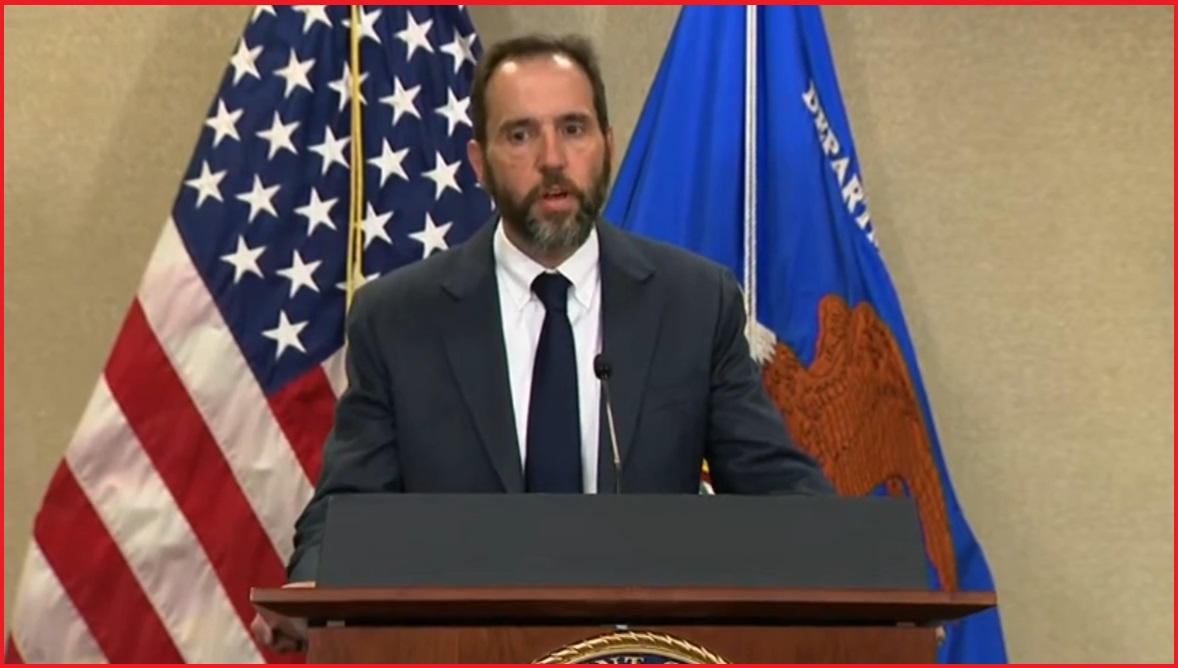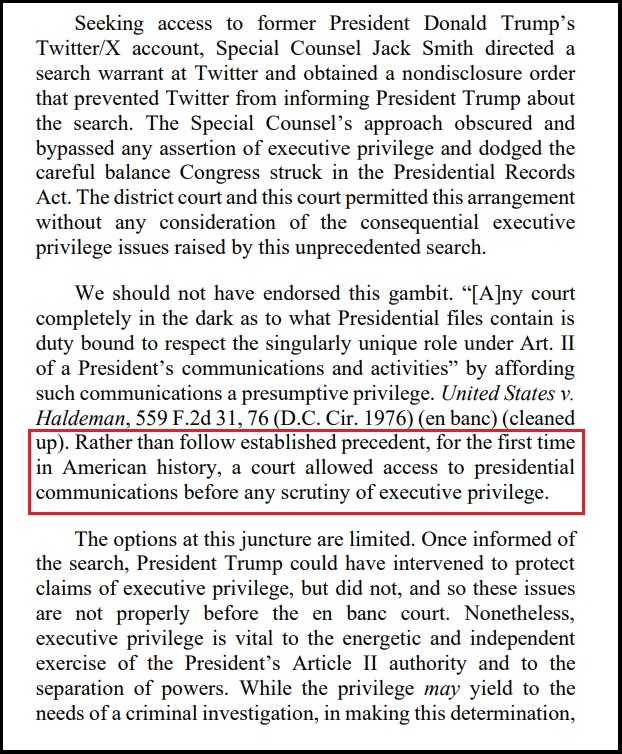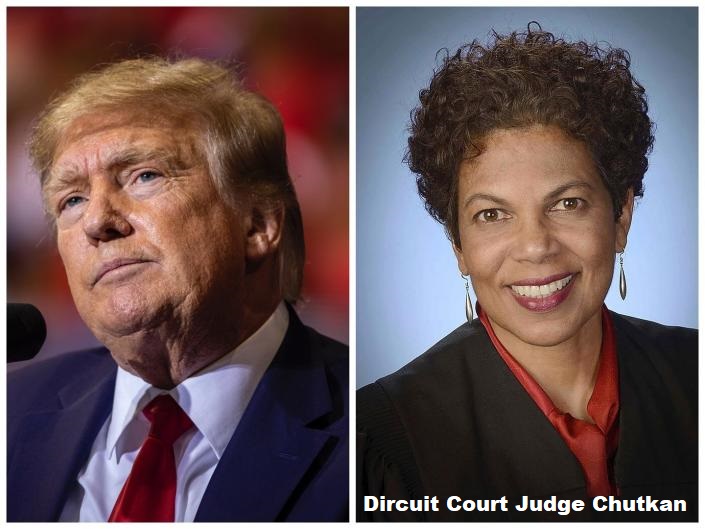DC Circuit Court of Appeals Excoriates Jack Smith for his Scheming Ways
In a 14-page opinion and ruling today [SEE pdf HERE] four judges from the DC Circuit Court of Appeals deconstruct the previous ruling from their own court as well as the DC judge beneath them that gave Special Counsel Jack Smith access to President Trump Twitter account data and then enforced a non-disclosure order.
There are multiple layers to this story, but the substantive part is the scheme and the construct of how the Lawfare took place. There’s no way this was coincidental; I’ll explain why.
First, there are only 7 members on the full DC Circuit Court of Appeals. When the Twitter case to gain access to President Trump communication came to the appellate level, somehow all three of the most left-wing judges were assigned to hear the appeal.
An “en banc” review would have included the full 7 members. However, that review was made moot by the release of the information (a result of the appellate decision). The release itself was done with the use of a non-disclosure order, hiding the ruling in secrecy and keeping President Trump from knowing about it. Once the other four members of the DC CCA eventually found out about the case and the ramifications for ‘executive privilege’ their opinion lambasting their own court is released.
As noted from the panel, “the court here permitted a special prosecutor to avoid even the assertion of executive privilege by allowing a warrant for presidential communications from a third party and then imposing a nondisclosure order.”
The Circuit Court justices note that Jack Smith could have gone to the National Archives for the information as they held the same set of documents and information. However, Smith didn’t want to go that route because the National Archives would inform President Trump as customary and provide him the ability to assert executive privilege over any of the 32 Direct Messages requested.
 Jack Smith didn’t want President Trump to know the prosecution was looking through his Twitter metadata and personal communication, so they went to district court under seal to file their search warrants in secrecy; then banning Twitter (the third party) from telling President Trump about it. The four justices from the DC Circuit Court of Appeals are furious the other three members of the court went along with this precedent setting usurpation of authority.
Jack Smith didn’t want President Trump to know the prosecution was looking through his Twitter metadata and personal communication, so they went to district court under seal to file their search warrants in secrecy; then banning Twitter (the third party) from telling President Trump about it. The four justices from the DC Circuit Court of Appeals are furious the other three members of the court went along with this precedent setting usurpation of authority.
President Trump could not appeal any part of this process because he was unaware it was taking place. In essence, a star-chamber of secrecy was established and the majority on DC Circuit Court of Appeals is not happy about it.
Jack Smith gained access after Twitter lost the 3-judge Circuit Court appeal decision. So, an en banc full 7-member ruling is essentially moot. The information was released, and Smith had access without President Trump or the White House having any option to assert privilege.
…”While a Twitter account primarily consists of public tweets, it may also include some private material, such as direct messages between users, drafts, and personal metadata. In fact, the material produced by Twitter included several dozen direct messages written by a sitting President. The district court afforded no opportunity for the former President to invoke executive privilege before disclosure, and this court made no mention of the privilege concerns entangled in a third-party search of a President’s social media account. This approach directly contravenes the principles and procedures long used to adjudicate claims of executive privilege.” [pdf HERE]
The ruling provides no remedy other than public scrutiny and perhaps fuel for Florida Judge Aileen Cannon who already has Special Counsel Jack Smith on his heels after several rulings in the Mar-a-Lago documents case.
What the publicity does is highlight to the world just how politically motivated all of this aforementioned action really is. Lastly, what are the odds of the random 3-judge panel to approve it. Even the DC Circuit Court itself seems to imply this was a structured outcome, which is even more infuriating to the majority within the court.







Post a Comment